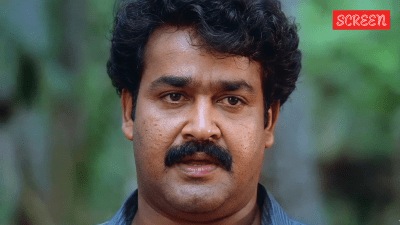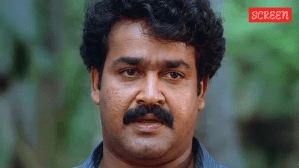Chetan Bhagat’s 12 Years review: Tone-deaf take on love and age-gap relationships
The novel ends up reinforcing the very stereotypes it claims to challenge
 12 Years: My Messed Up Love Story (Amazon.in)
12 Years: My Messed Up Love Story (Amazon.in)In many ways, Chetan Bhagat’s latest book, 12 Years: My Messed Up Love Story, is true to its title: it’s a tale as old as time — boy meets girl, they fall in love, the girl’s family objects, causing a long, painful separation. Eventually, there is vindication and love conquers all. Only, there are some key differences: the girl, Payal Jain, is a 21-year-old virgin, fresh out of college, who has never been kissed and knows nothing about dating. The boy is not a boy at all — he is a 33-year-old man, Saket Khurana, in the middle of a messy divorce, bitter and mad at womankind (because of a “greedy b*tch” of a soon-to-be ex-wife, of course), with two full careers behind him. The girl’s family objects to the match because of all the usual reasons — he is not Jain, he drinks, eats meat and is someone the girl actually chose. But they also object because he is much older than their much-too-young daughter and separated by a world of experience.
This flattening of nuance is the central issue with Bhagat’s book. In an interview with this paper, Bhagat said, “To say that she is still not able to make her own decisions… is infantilising women… Should we remove voting rights and the right to work?” The irony is that it is apparent from the outset that Saket is attracted to Payal — as opposed to his “shrewd” ex-wife — in large part because of her “pure”, innocent character. The man literally coaches her on all things love and sex (and finds an in to do so by offering to guide her as a newbie in an industry he was in for a decade). During their first meeting, Saket tells Payal, “Compared to [me], you’re a little kid.” About three paragraphs of clumsy, uncomfortable flirting later, he thinks to himself, “Here was my chance [to hit on her]. And I was going to take it.”
Calling the story “messy” up top and pitting the romance against traditional forms of patriarchal control seem to be weak attempts at absolving both the man in the story and the man behind it from answering some tougher questions. To use feminism-adjacent arguments (women’s infantilisation and moral policing) to deflect attention from or justify the inappropriate nature of this dynamic reeks of doublespeak — and is rather insidious. The question here — and with a lot of other age-gap relationships between barely legal girls and much older men — is not whether Payal has the right to choose for herself or even if attraction can or should be policed. It is whether a man, who is over a decade older, should be acting on said attraction.
Beyond the “messy”, the book is overwritten and misses the mark. For a stand-up comedian, Saket is painfully unfunny. Saket “falls in love” with Payal by their third casual meeting — hardly a connection readers can buy as a matter of love over lust. He is also not a man who holds himself accountable: his response to any distress is to play victim, wallow and make everything worse. His attitude, more than his age, makes him an ill-fitting partner. That he is an unlikeable and immoral protagonist, though, is not the issue — his portrayal by Bhagat as the ultimate romantic hero, wronged by society, is. The book gives little to the reader — beyond monologues of saccha pyaar — to root for this couple.
Given their prevalence in society, age-gap relationships need to and should be explored more. But Bhagat is not the man for the job. 12 Years is a poor, flat reading of the dynamic. The book is rooted in nothing more than wannabe edgelord, out-of-touch writing.
- 01
- 02
- 03
- 04
- 05































